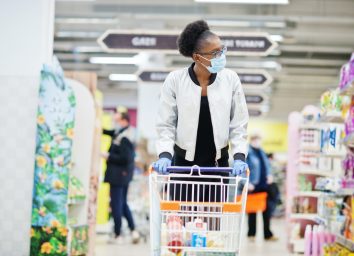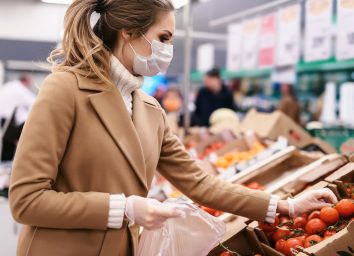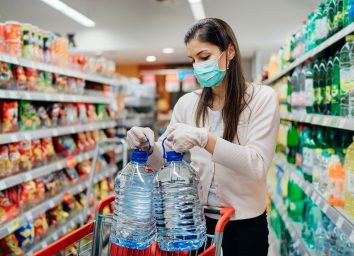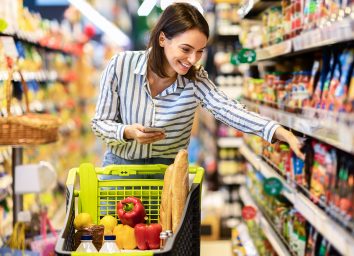7 Genius Grocery Shopping Tips to Make You a Safer Shopper
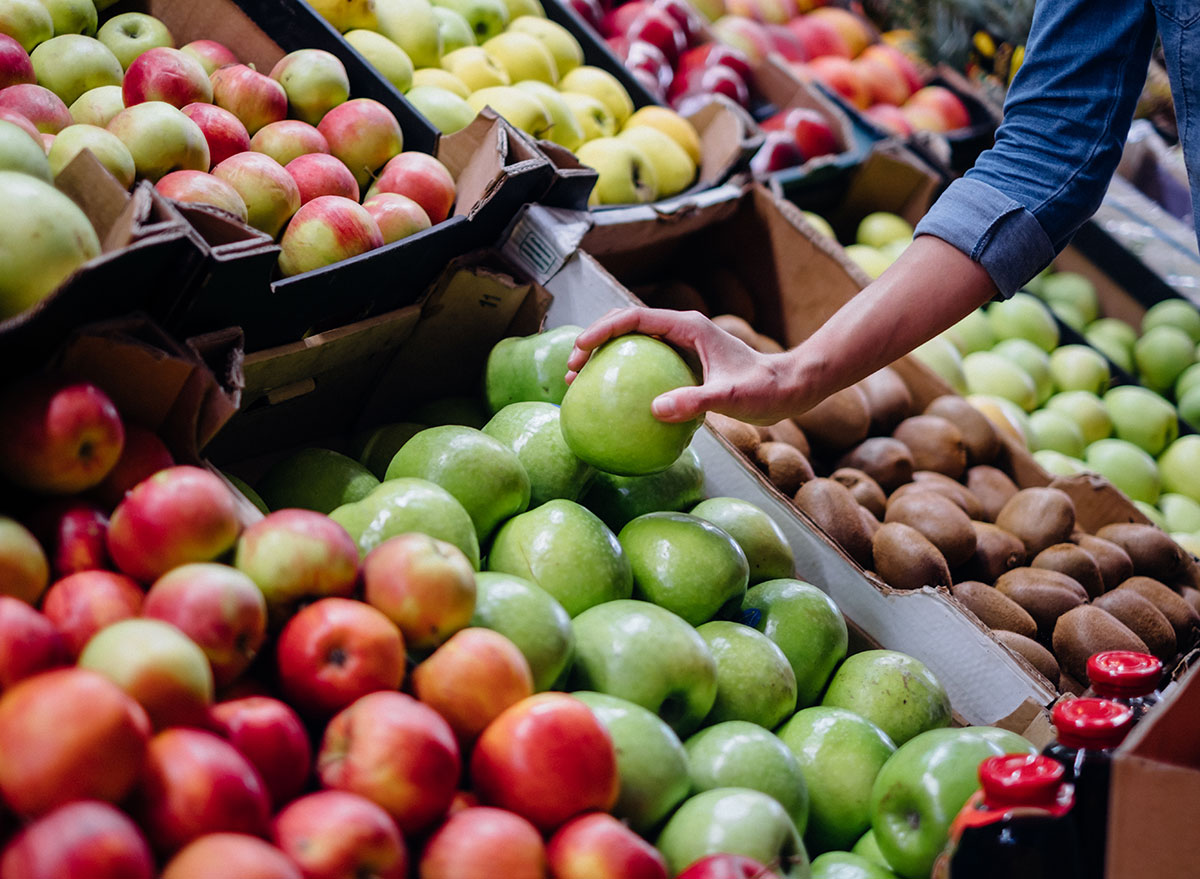
In the wake of COVID-19, we’re all being told to stay at home to help slow the spread of the virus. And sure, ordering takeout or doing at-home grocery delivery are appealing options to get food, but they’re not affordable for everyone. Coronavirus or not, heading to the grocery store at some point is both essential and inevitable.
Now, it’s more important than ever to take safety precautions—from planning your trip ahead of time to getting your food home safely. Shelley Feist, Executive Director of The Partnership for Food Safety Education, shares her expert tips for being a safe grocery shopper. These are great rules to follow during the pandemic, and from now on. (For more safe grocery shopping tips, make sure to sign up for our daily newsletter.)
Plan ahead with a shopping list.
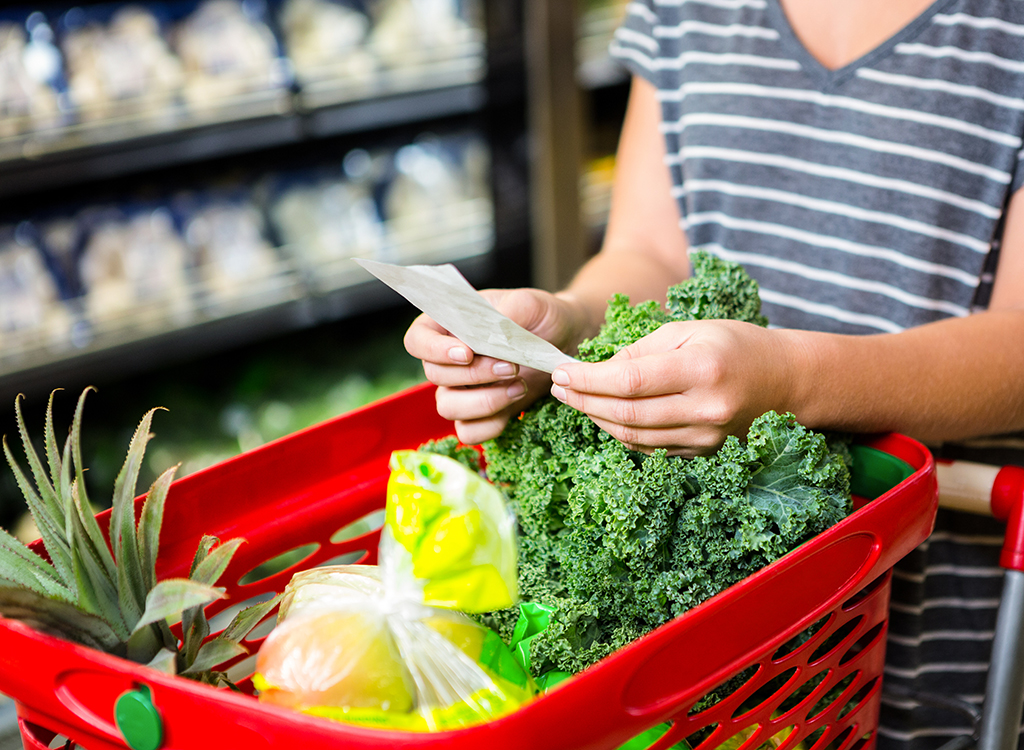
The middle of a global pandemic is not the time to grocery shop on a whim and decide what’s for dinner while you’re there. “Prepare a shopping list in advance and link ingredients to specific meals,” says Feist.
Arming yourself with a plan can help you shorten the lengths of your shopping trips, avoid aimless wandering through aisles, and maintain six feet of social distancing—all of which can minimize your exposure to other shoppers who could possibly be carrying the coronavirus.
Not to mention, sticking to your list prevents you from impulse-buying food you don’t need, which is super wasteful (and expensive). Here’s exactly how to write an effective grocery shopping list.
Wipe down your shopping cart.
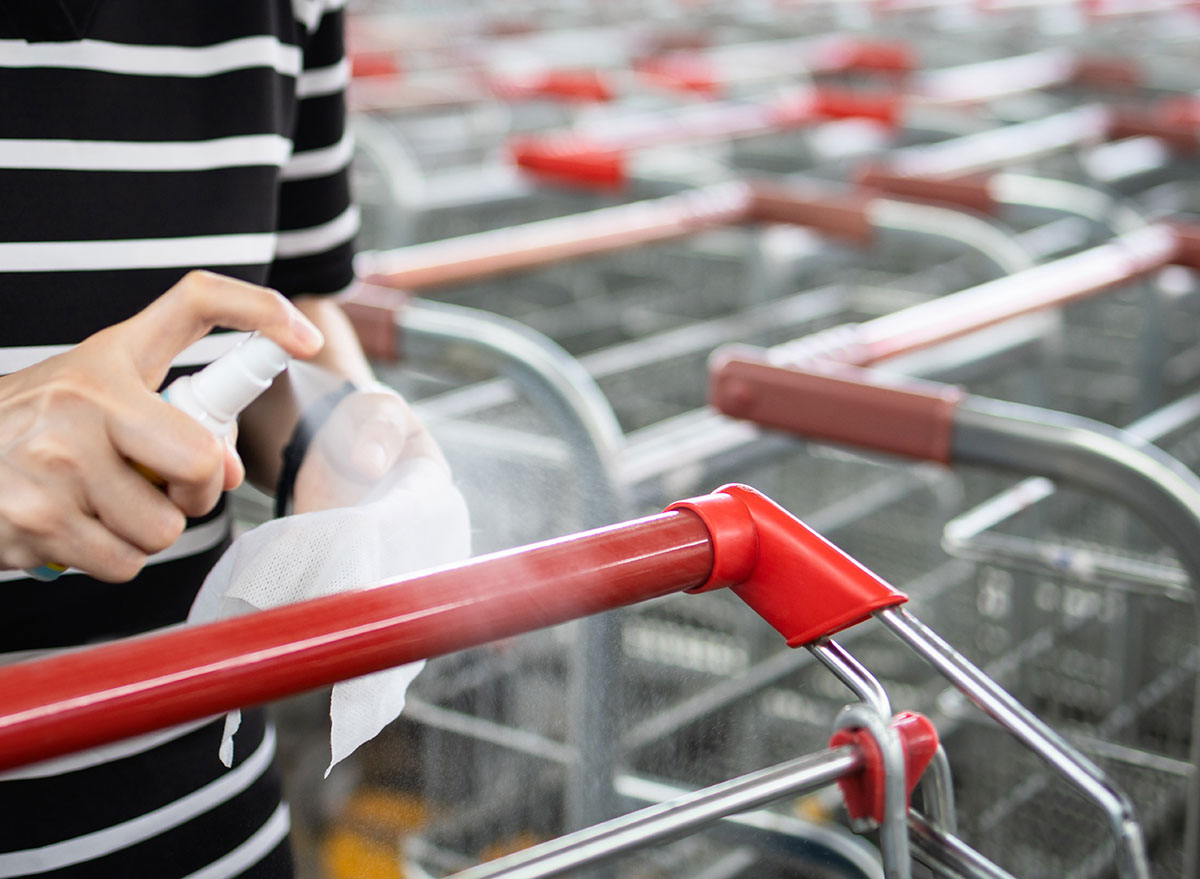
Gross, but true: A study done by Reusethisbag.com found that grocery store shopping carts have 361 times more bacteria than a bathroom doorknob. What’s more, almost 75 percent of those germs were identified as potentially antibody-resistant and harmful to humans.
Before you even walk into the store, Feist says, “It’s good practice to disinfect your shopping cart, especially the handlebar and child seat.” This goes for COVID-19 times, and all the time as well. Related: 8 Scary Signs Your Grocery Store Isn’t Sanitized Properly.)
Put items in plastic produce bags.
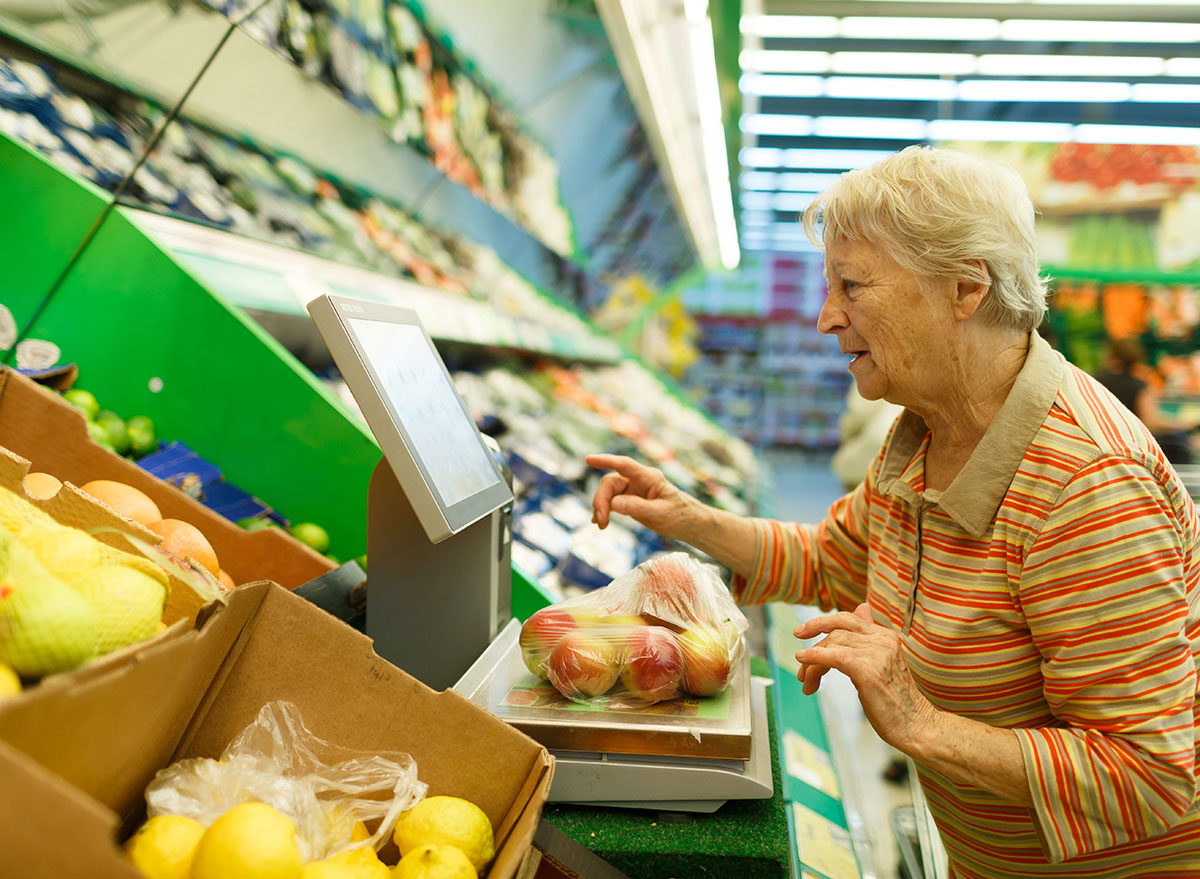
Even if you’re a stickler for sustainability, for safety’s sake, you should be putting your meat and produce in those tear-off plastic bags, conveniently located in those respective sections of the store. “These bags really help cut down on cross-contamination,” says Feist.
Otherwise, the juices from your raw chicken can get onto the shopping cart or other food items in there—and even one drop of raw poultry juice could contain the food-borne germ Campylobacter, which can make you sick. Bag your produce too, lest germs on the checkout conveyor get all up on your red pepper that’s eventually going on your salad. Yuck. (Related: 7 Grocery Shopping Mistakes You Can Easily Avoid.)
Smartly buy in bulk.
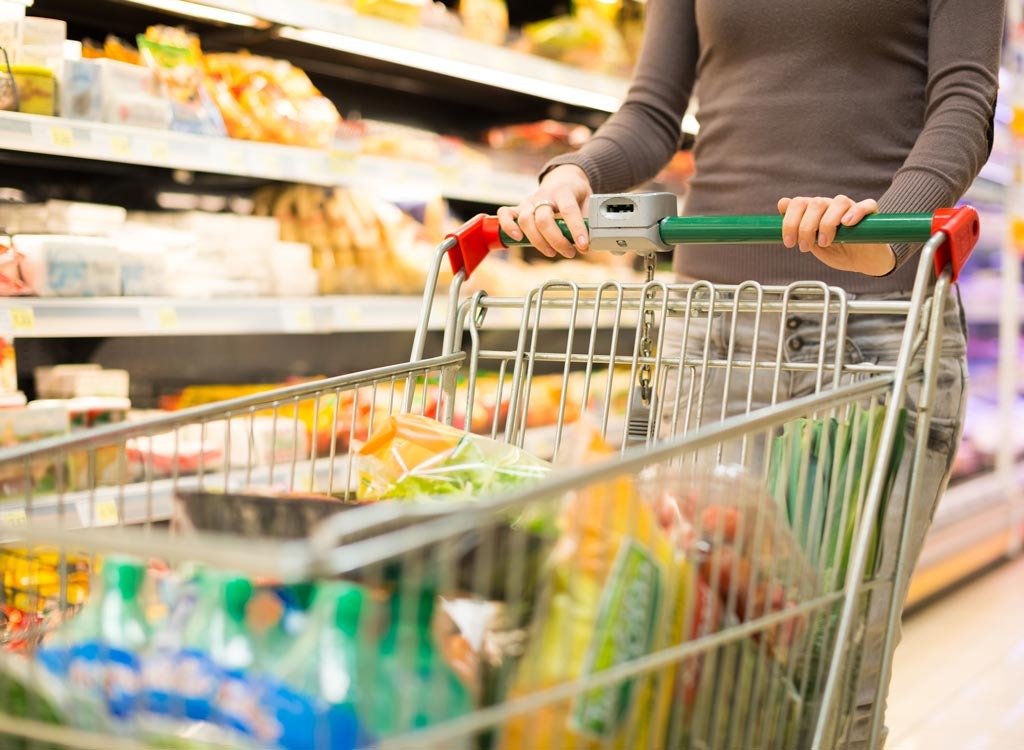
“Buying in bulk helps you reduce the number of trips you’re making to the store,” says Feist, which is a good safety precaution to take in the midst of shelter-in-place orders. That said, buying a month’s worth of perishables at once won’t help anyone because, well, these items are perishable—this wastes food and can cause unnecessary demand and shortages.
Feist suggests buying one-to-two weeks of groceries at a time, and when buying fruits and veggies in bulk, be aware of how long they last in the refrigerator. With poultry, you really only have three-to-four days to consume it safely; if it’s not on the dinner menu before then, “freeze it with the original wrapping and packaging label so you know the date you froze it,” says Feist. (Here are the 7 Best Foods to Buy in Bulk at Costco.)
Don’t manhandle produce.
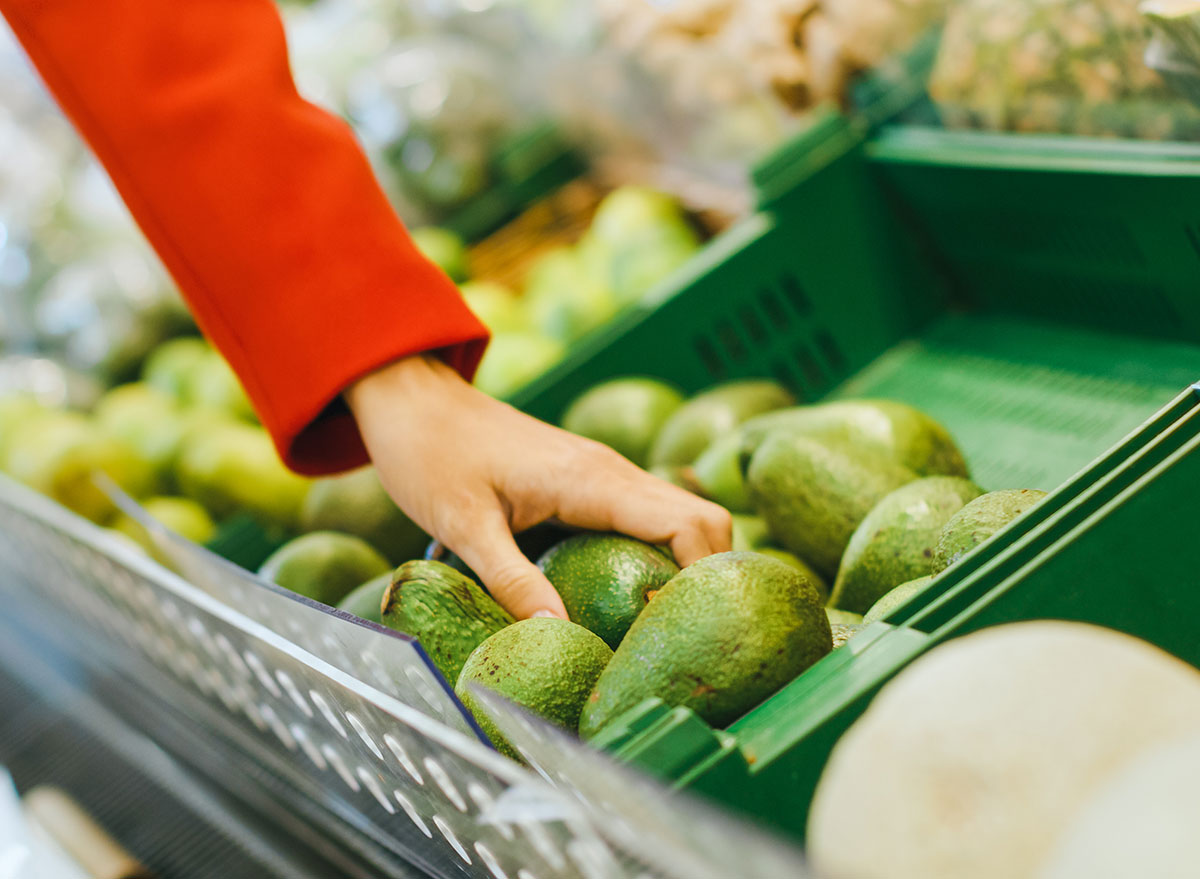
It may be tempting to pick up and closely inspect every apple, but think about it this way: other customers are also regularly touching and putting items back, which is a surefire way to spread germs. To help yourself and others, scan produce with your eyes instead of your hands and “do your best to minimize the handling of food items in the store,” says Feist.
“Once you get your food home, rinse your produce under regular running tap water, then blot dry with a clean cloth or paper towel.” (Here are the 5 Best Ways to Sanitize Your Groceries.)
Bring your own bags (and wash them after).
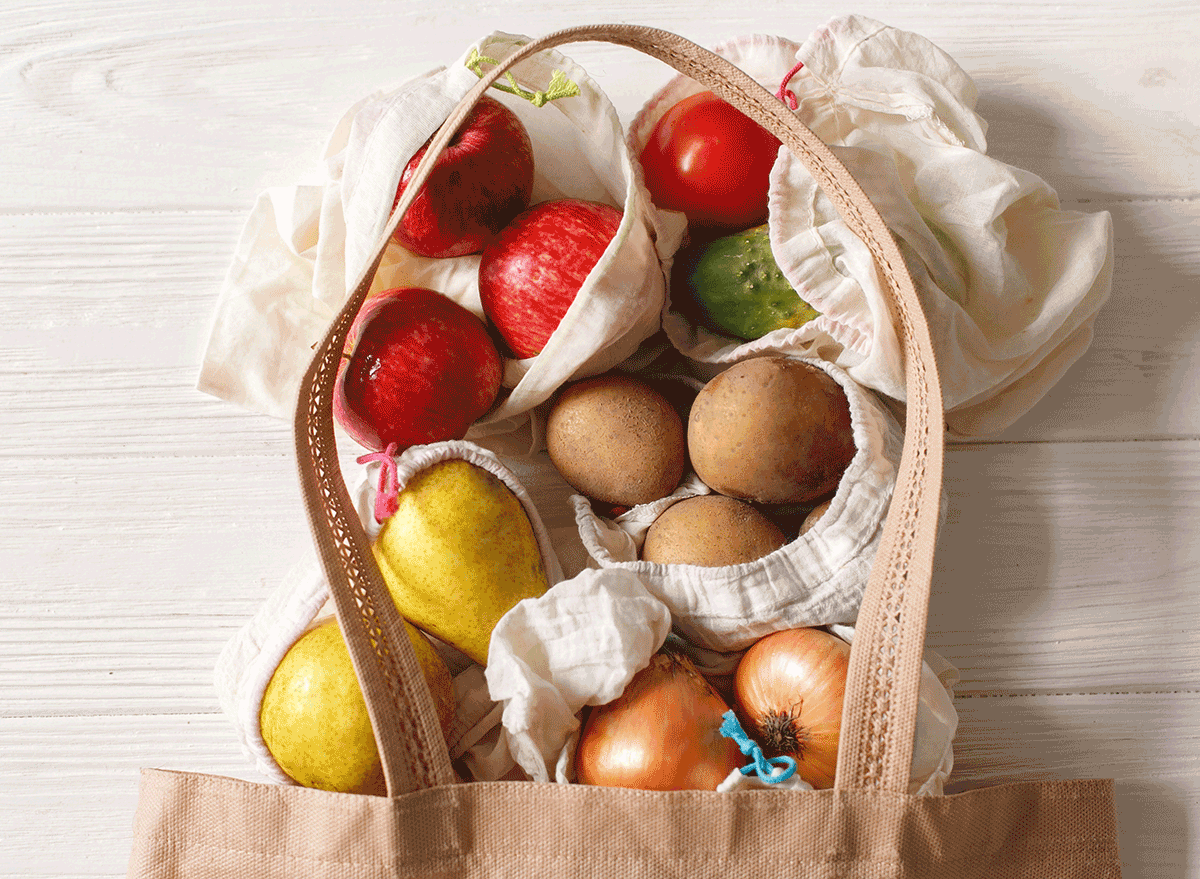
Those single-use plastic bags at checkout can be petri dishes of germs and viruses. A study done by the U.S. National Institutes of Health revealed that coronavirus can live on plastic surfaces for up to three days. Consider BYOB (bringing your own bags)—Feist suggests investing in sturdy canvas totes that hold up well to frequent laundering, since you’ll want to immediately wash these bags every time you get back from the store (don’t leave them in your trunk!).
However, it’s important to note that some retailers are not allowing reusable totes at this time, so check with your store before you go.
Shop the outside of the store last.
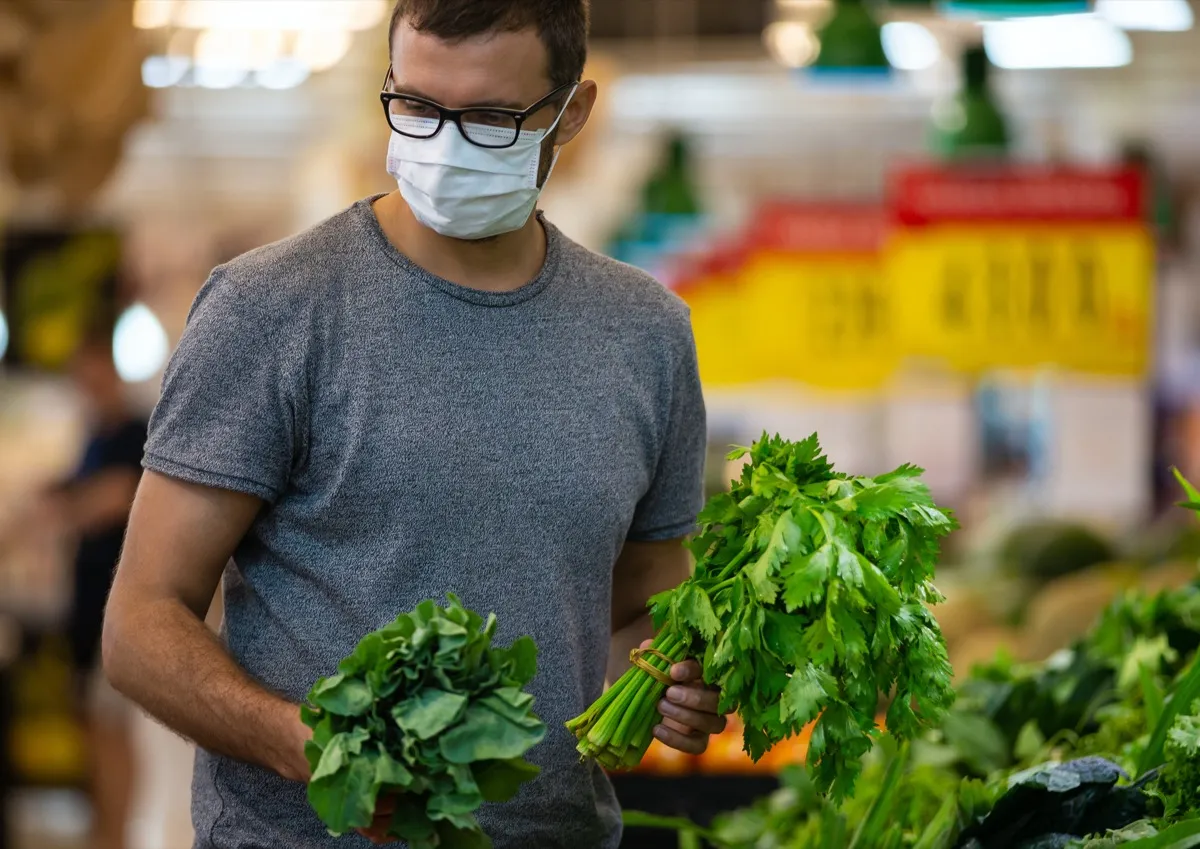
Supermarkets are laid out so that the fresh produce is the first thing you see, and your staples (milk, eggs, bread) are in the back corner; it’s a strategy designed to make you stay longer, walk the whole store, and buy more. However, in the middle of a pandemic with the weather heating up, lengthy grocery store excursions and unrefrigerated perishables are exactly what you want to avoid.
“Shop the center of the store first and get your perishables last,” says Feist. “For safety reasons, you want to get perishables into your refrigerator within two hours, or one hour if it’s over 90 degrees F outside.” All this to say, the longer your lettuce, chicken, and yogurt can stay on their refrigerated shelves before checkout, the better. And, to make sure you’re buying the right foods, make sure to avoid the 100 Unhealthiest Grocery Items in America.
